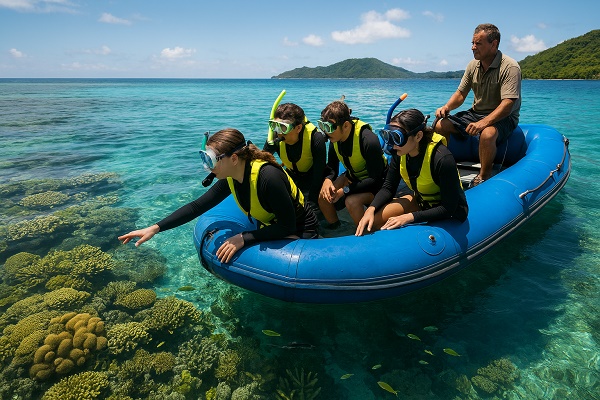Ecotourism: Traveling Responsibly to Protect Nature

In an age where environmental awareness is growing rapidly, ecotourism has emerged as a powerful way to travel responsibly. Unlike conventional tourism, which often puts pressure on natural resources, ecotourism focuses on conservation, sustainability, and community involvement while offering travelers unforgettable experiences in nature.
What is Ecotourism?
Ecotourism is a form of responsible travel that emphasizes visiting natural areas while conserving the environment and improving the well-being of local communities. It is about enjoying the beauty of nature without harming it, and ensuring that future generations can also benefit from these landscapes.
Core Principles of Ecotourism
Conservation of Nature – Protecting biodiversity, wildlife, and ecosystems.
Sustainability – Minimizing the negative impact of tourism on the environment.
Community Engagement – Involving local communities in tourism activities and supporting their economy.
Education – Creating awareness among travelers about the importance of protecting the environment.
Popular Ecotourism Destinations
Costa Rica – Known as a global leader in ecotourism, offering rainforests, volcanoes, and rich biodiversity.
Kerala, India – Famous for its backwaters, wildlife sanctuaries, and eco-friendly resorts.
Kenya – Safaris in national parks that focus on wildlife conservation and local Maasai culture.
Bhutan – A carbon-negative country that promotes sustainable tourism.
Galápagos Islands, Ecuador – Rich in unique species, strictly protected with limited tourism access.
Activities in Ecotourism
Wildlife Safaris & Bird Watching – Observing animals in their natural habitat.
Nature Walks & Trekking – Exploring forests, mountains, and coastal trails.
Eco-lodges & Homestays – Staying in accommodations that use renewable energy and eco-friendly practices.
Cultural Exchange – Learning traditional ways of living from indigenous communities.
Marine Ecotourism – Diving, snorkeling, and protecting coral reefs.
Benefits of Ecotourism
For Nature – Helps conserve biodiversity and reduce carbon footprint.
For Communities – Provides income opportunities through eco-lodges, handicrafts, and guiding services.
For Travelers – Offers unique experiences that combine adventure, learning, and relaxation.
Tips for Responsible Ecotourism
Choose Eco-friendly Operators – Travel with companies that follow sustainable practices.
Respect Wildlife – Avoid disturbing animals and keep a safe distance.
Reduce Plastic Use – Carry reusable bottles and bags.
Support Local Communities – Buy handmade products and use local services.
Leave No Trace – Ensure you don’t litter or damage natural habitats.
























